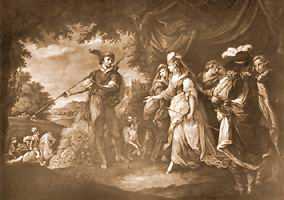Provo was one of only eight stops on Rick Riordan’s tour promoting his
latest book, The Serpent’s Shadow -book three of the Kane Chronicles.
BYU Bookstore was honored to be the bookseller for the event. And it
was an EVENT.
If you worry about the future of books you should have
been there. The excitement was palpable. Rick Riordan clearly has
established a rock-star status with these readers.
All he had to do was mention the name of a character in the books and
cheers would erupt. He announced that his next series will be housed in
Norse Mythology and the cheers may have loosened the roof girders.
The
audience was the perfect blend of courtesy
and enthusiasm. They loudly expressed their love of the books but they
listened just as avidly. My booklover’s heart reveled in the sight of
young readers caressing the covers of favorite titles and flipping
through books they could hardly wait to meet.
Call it hyperbole if you will, but lives were changed that night.
Reading was validated. When readers experience that magical rapport
with an author the possibilities of writing and its power changes them, I
believe, forever, empowering them to dream without
bounds, to read further, to discover the world beyond their limited
scope.
Mr. Riordan was gracious, unpretentious and charming. He signed
over one thousand books in an hour and a half. You can buy signed
copies of most of the books at the BYU Bookstore
or at byubookstore.com. Provo Library merits high praise in their
presentation, their dedication to readers and books, and not least of
all, for providing this magical experience at no charge. Kudos to them!!
-Anita
See Rick's post on his signing party in Provo here.
Get the first book of the Kane Chronicles at byubookstore.com.
-Anita
See Rick's post on his signing party in Provo here.
Get the first book of the Kane Chronicles at byubookstore.com.







